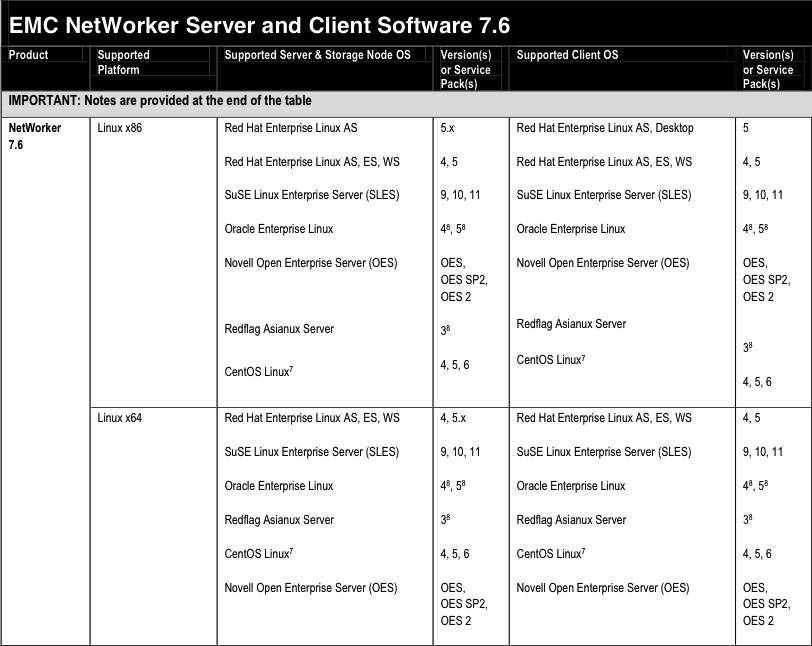A common question I get asked by Linux customers is “Can I run my NetWorker server on CentOS?”
Up until a short while ago, I always had to give an answer that differentiated between can and supported. Thankfully a while ago, EMC started supporting NetWorker clients running on CentOS, but servers and storage nodes were a bit of a hold out.
This morning I did a bit of a happy-geek dance (not really, but that description certainly fits my mood) when I read the latest software compatibility guide and saw:
For people who need to run Linux, but dislike the licensing costs of the commercial distributions (or like me, question the quality of support you get from such distributions), this will be a big help.
I’d like to think this is part of a growing trend amongst enterprise vendors – CentOS is in every way an enterprise distribution (and especially appreciated by many administrators thanks to the Yum package management system).

Great news! I’m just wondering what the support boundaries are.. if you add non-default repositories, will CentOS still be supported?
One of my favourite repos is, of course, Dag Wiers’ RPMForge.
I can’t see this being an issue – the compatibility guide, when referring to clients at least, effectively suggest that any 2.6.(4?) or higher kernel with an RPM distribution is supported.
Adding any particular repository on top should not affect this.
No, personally I agree with you – but what is supported and what is not, is – in my experience at least – a very fluctuating business.
If you would assume support based on a specific distro kernel, maybe the application vendor will consider compiling a highly customised one, or downloading and running a 3rd party custom one, a matter of significantly modifying the underlying OS. Essentially, the vendor would even be correct in assuming so, as the kernel still dictates the essence of the OS.
Simply said: will the installation of a non-default kernel modify the OS in a such a way that support will end?
Just wondering 🙂
I find it amusing that the yet-to-be-released CentOS-6 is apparently supported. And this when the upstream, also-yet-to-be-released RHEL-6 isn’t even supported yet!
Any way your support matrix from the future can shoot me some .ISOs?
🙂
@David I’m suspecting the developer’s DeLorean broke when he wanted to return to pick up the forgotten RHEL DVD. So, that’s prpbably why CentOS 6 is supported and RHEL not.
Good point, well noticed indeed.
🙂
Whats your opinion about the RHEL support statements in the “EMC Software Compatibility Guide”? In my opinion they do not make sense for RHEL 5.x. The guide states that “Red Hat Enterprise Linux AS, ES, WS 5” is supported, but Red Hat names the Server products “RHEL” and “RHEL AP” in Version 5. redhat.com | Compare Servers
Do you know a official statement from EMC about the RHEL 5 support? Are both editions supported under 32/64bit on client and server?
In general any version of RHEL 5.x should be supported without issue. One of the key things to take out of the compatibility guide is that EMC will now, generically, support any RPM based Linux distribution with an appropriate kernel version.